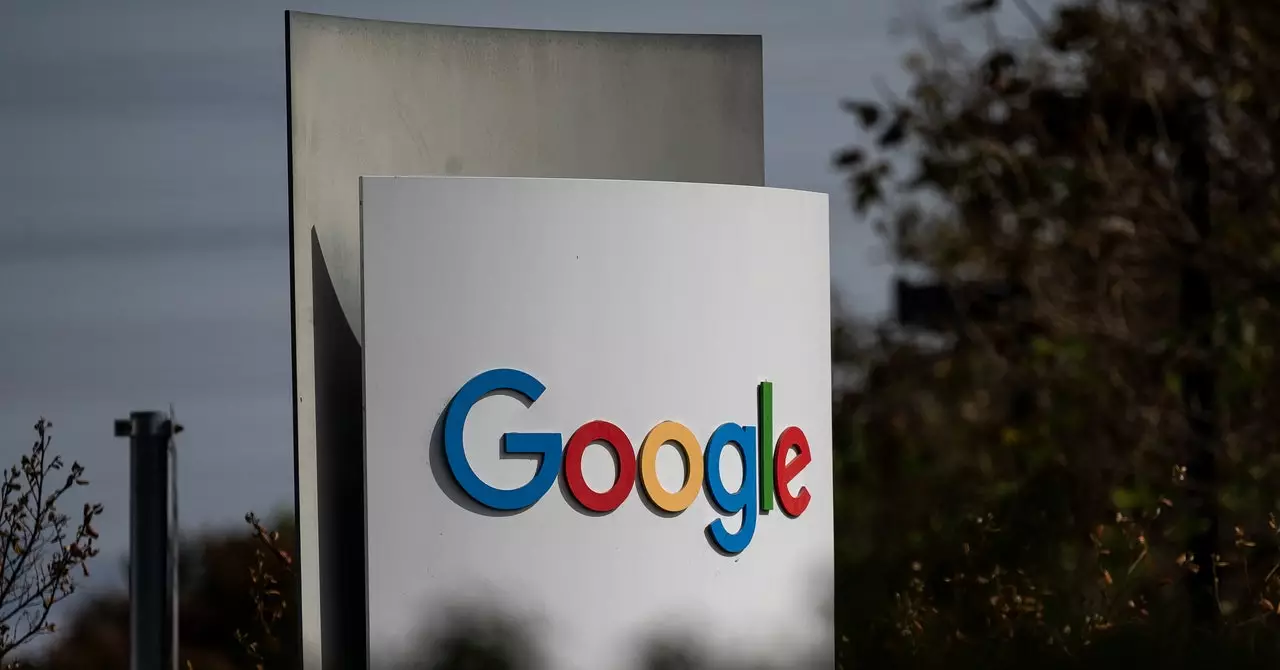The launch of Google’s Gemini Assistant has sparked significant discussion within the tech community, especially regarding its potential to rival OpenAI’s ChatGPT. However, there are critical underlying factors that could severely impact Gemini’s growth trajectory. The antitrust lawsuit against Google signals that the company will need to navigate precarious waters if it hopes to rise to a position of dominance in the future of AI chatbots and generative technologies.
In a recent filing, Google proposed restrictions limiting its influence over device manufacturers, browsers, and wireless carrier licensees for the distribution of the Gemini Assistant. This move comes on the heels of the U.S. Justice Department’s call for more significant regulatory measures against Google, including a demand to minimize its hold on partnerships that catalyze its success in the search market. Notably, these partnerships have historically enabled Google to become a household name. The federal scrutiny has placed Google under a microscope, stripping away the comfort of its previous business methodologies.
The irony of this situation lies in Google’s acknowledgment of its previous strategies that prioritized search partnerships over innovation in newer fields like AI. The court’s previous rulings have established that Google engaged in practices that favored its search functionalities, leading to monopolistic advantages. Now, the crux of the matter involves whether the company can transition its established dominance into appealing AI solutions without continuing the same detrimental practices.
Within the broader antitrust discussion lies the influential aspect of default search status on devices. Judge Amit Mehta’s ruling stressed that Google’s successful partnerships, enabling it to be the default search engine, have perpetuated its market control. Users tend to adhere to default settings, particularly on mobile devices and browsers—a behavior that Googles strategy has capitalized on ruthlessly.
The proposed restrictions from Google suggest a more strategic approach to maintaining default status while testing the waters of competition. For instance, rather than imposing default search across all Samsung devices, Google may allow certain models to choose alternatives, thereby fostering an environment of choice. However, the mere act of loosening control may prove insufficient against the tide of evolving alternatives, particularly from competitors like OpenAI, where success hinges on innovation and user experience rather than mere default placement.
Interestingly, in the shadow of these legal challenges, investor sentiment for Google remains remarkably optimistic. Despite the ongoing antitrust scrutiny, Alphabet’s shares rose significantly in 2024, with over 37% gains. The stability in market performance suggests investors are weighing Google’s reputation for innovation against the regulatory pressures it faces. Moreover, if the Gemini Assistant is indeed capable of delivering a superior user experience, market perceptions may shift favorably towards its long-term viability.
The juxtaposition of Google’s stable performance and turbulent legal landscape raises pertinent questions: Are investors primarily driven by past performance, or is there recognition of future potential that the broader market is yet to fully appreciate? While the successful establishment of Gemini Assistant could promise to refresh Google’s brand with innovation, failures triggered by regulatory pushback may instigate market skepticism.
As Google strives to enhance Gemini’s appeal, a critical balance between innovation and adherence to regulatory stipulations will dominate the company’s operational framework. The blend of advocacy for user experience and compliance with fair market practices will shape the future of Google’s relationship with its partners.
The anticipated hearings set for April will likely determine the extent of penalties Google might face, which could indefinitely impact its strategic roadmaps. Given the complex interplay between technology, law, and market dynamics, the evolving narrative surrounding Gemini underscores the urgency for Google to adopt a more user-centric perspective while simultaneously addressing compliance concerns.
Gemini Assistant’s journey toward becoming a staple in AI technology is laden with challenges that encompass legal barriers and market dynamics. Google’s ability to navigate these waters successfully will be pivotal not only for the future of its new product line but for its standing in the tech landscape at large. Future developments will be closely watched as the industry awaits to see whether Google can indeed transform potential into reality amidst these stringent conditions.


Leave a Reply